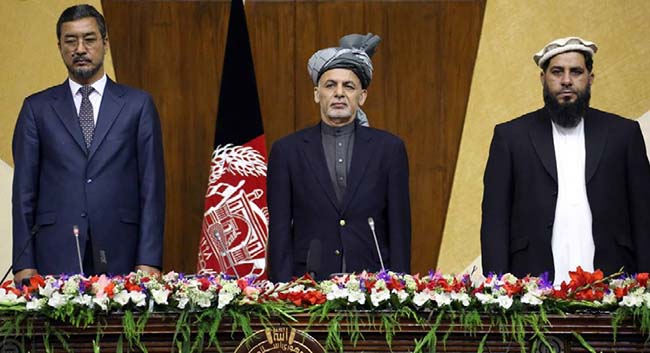I live under a democratic government when my rights and dignity are honored, when my nation’s blood is not spilt on the grounds of their caste, creed and color and when my words and practices are tolerated among the public. Democracy lets people speak their minds and shape their own and their children’s futures. That so many people in so many different parts of the world are prepared to risk so much for this idea is testimony to its enduring appeal. Similarly, Afghans made great sacrifices to embrace democracy and exercise their rights in a safe environment.
In the post-2001 era, many assumptions have been made about the benefits of democracy in Afghanistan. International assistance had focused on the re-establishment of representative democratic institutions, such as a presidential system, bicameral parliament, and provincial councils. However, little attention has been paid to Afghan perceptions of democracy. Indeed, far from unquestionable, the benefits of democracy are not universally acknowledged among Afghans.
First, many Afghans are disappointed that the outcomes of democracy, the high expectations of the social and economic development that democracy would bring, along with increased security, have not been met.
Secondly, the under-performance of elected representatives in democratic institutions has served to consolidate the gap between people and government, and has not proved to be a means through which the interests of the majority of citizens can be addressed.
It is well known that the word “democracy” originates from Ancient Greece and means ‘power of the people’. Such an idea, in its literal sense, encompassing economic, political and social democracy does not exist anywhere in the world. This is primarily because the planet’s resources, many of which human beings need in order to live, do not belong to the people as a whole. Instead, they are in the hands of a small, privileged, rich minority. Such extremely limited political ‘democracy’ as does exist in parts of the modern world, is scarcely even a shadow of what genuine democracy will be like when it is finally put into practice.
For real democracy, imagine a society where all the people would be of equal status, with equal, free access to resources owned by the community. Imagine a society where everyone can have an equal say in the issues that concern them. Above all, imagine a world in which all the people own and share the wealth that we need in order to live. One can hardly find a perfect and ideal democracy with all its components.
Democracy as a system of governance is supposed to allow extensive representation and inclusiveness of as many people and views as possible to feed into the functioning of a fair and just society. Democratic principles run in line with the ideals of universal freedoms such as the right to free speech.
The ideals of democracy are so appealing to citizens around the world, that many have sacrificed their livelihoods, even their lives, to fight for it. Indeed, our era of “civilization” is characterized as much by war and conflict as it is by peace and democracy.
It is self-explanatory that great efforts and sacrifices were made in Afghanistan, since the downfall of the Taliban’s regime, to promote the participation of civic groups, political parties, women and government bodies in the country’s political and electoral processes. This process has taken place in the context of a difficult transition from Taliban rule to new democratic institutions. While political organizations and civil society groups have made some progress in advancing democratic political processes, much more needs to be done to protect gains Afghanistan has made in democratic governance and the protection of human rights, especially the rights of women. Security, political stability and democratic governance are closely linked, and the legitimacy of Afghanistan’s government hinges on credible elections.
However, people rights are violated to a high extent in Afghanistan. As a result, the United Nations Assistance Mission in Afghanistan (UNAMA) has reported an increase in civilian casualties in 2016. Based on the report, in all 161 children that were killed from January to March and 449 were injured, marks a 29 percent rise over the first three months of 2015.
Terrorism is a highly perilous issue in the country which puts democracy under question. The citizens’ ballots failed to overcome bullets that snatch their fundamental rights and curtail their freedom. The elections did not bear the desired result and left our people hopeless on the basis of escalated insurgency and emergence of new armed groups, mainly the self-styled Islamic State of Iraq and the Levant (ISIL). Likewise, the peace talks were proved abortive and the Taliban fighters have launched their “Omari Operation” that will lead to great loss of life in Afghanistan the same as last year or worse. Hence, can I really claim to exercise democracy in my country?
Constitutionally, the government is supposed to strengthen national unity, safeguard independence, national sovereignty and territorial integrity of the country. It is to establish an order based on the peoples’ will and democracy. Moreover, the government is committed to “Form a civil society void of oppression, atrocity, discrimination as well as violence, based on rule of law, social justice, protecting integrity and human rights, and attaining peoples’ freedoms and fundamental rights”. If all these are fulfilled, I will claim to have democracy in my country.
Home » Opinion » Living in a Democratic Country?
Living in a Democratic Country?
| Hujjatullah Zia

